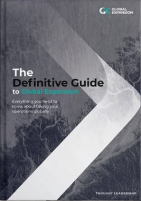Our team of legal experts take care of your people so that you can focus on your business.
Limit risk
We align employment agreements with local regulations to protect you and your people.
Stay ahead of changes
We make sure you stay ahead and informed of any regulatory changes.
Avoid fines
We avoid fines by keeping your data safe and compliant with GDPR, ISO 27001, and SOC 2 regulations.
How does it work?
You choose your people
We draft employment agreements for your new team members in alignment with local laws and regulations where they’re based.
We onboard them
We guide and support your new hires through the onboarding process, ensuring compliance with all documentation and local employment requirements.
We support them
Our local experts oversee your new employee’s HR, payroll, taxes, and benefits, anywhere in the world.
You reach your goals
You grow at the speed you need to succeed with the best global talent. We handle everything else.

Frequently Asked Questions
What is global employment compliance?
+Global employment compliance is the process of aligning your business's employment practices with the laws of the countries in which you operate.
It can be a complex and daunting task, as employment laws vary significantly from country to country and even within regions.
Compliance may require implementing new policies and procedures or altering existing ones. It may also require using different HRIS systems or payroll providers across countries.
Despite these challenges, global employment compliance is essential in order to avoid costly penalties and protect the reputation of your organization.
By partnering with an advisory EOR like Global Expansion, you can navigate the complexities of global employment compliance with confidence.
How do global HR compliance services benefit my company?
Avoid costly fines
By staying up to date on employment compliance, you mitigate the risk of employment-related lawsuits and costly fines.
Improve retention rates
Employees who feel like their employer cares about compliance are more likely to feel valued and supported in the workplace.
In turn, they are more likely to be engaged in their work and less likely to look for opportunities elsewhere.
How can Global Expansion manage changing global employment requirements and regulations?
+Global Expansion stays on top of regulatory changes through our globe-spanning network of industry-leading partners in the legal, financial, and HR domains. These local experts keep an ear close to the ground, staying ready for any upcoming regulatory changes well in advance of the rollout.
Being able to offer this type of guidance to our clients is crucial to our "trusted advisor" style of working, and as a result something we devote a lot of resources to maintaining.
What is the best way to cover or avoid compliance fines?
+The best way to avoid compliance issues and the hefty fines they can incur is to stay up to date with constantly changing labour laws, tax requirements, and other regulations.
The simplest way to do this is to partner with a Global Employer of Record (EOR).
As a Global EOR, we take full legal responsibility for your employees, which includes:
- Employment agreements
- Payroll
- Employee benefits
- Taxes and social security
- Any responsibilities toward local institutions, e.g. the Home Office
We give you the peace of mind you need to focus on your business, secure in the knowledge that our expert teams are handling all employee and compliance matters.
What are the most challenging employment laws and regulations?
+The most challenging part of employment laws and regulations is the fact that they’re different for every country and are constantly changing.
Specific areas that often cause problems and incur fines include:
- Permanent establishment mismanagement
- Breaches of data privacy (GDPR and others) or violation of payroll and other local labor laws
- Issues with (work) visa and immigration requirements
- Employee misclassification
In order to mitigate compliance risks, you need to keep up with regulatory affairs for every single country in which you employ people. Or, you can work with an EOR.
From Albania to Zimbabwe, get there faster with Global Expansion
Ready to build your global team?
Want to stay compliant and hire with confidence in 214+ countries and territories worldwide?
Our global hiring guides have everything you need.











-Services-Cover.png?width=1000&height=1275&name=The-Strategic-Importance-of-In-Country-Partnerships-for-Employer-of-Record-(EOR)-Services-Cover.png)



